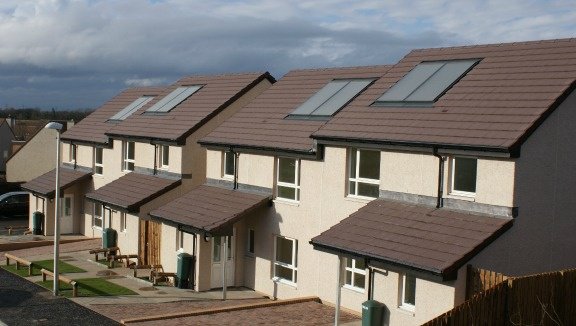New recovery of possession of adapted properties guidance for social landlords
The Scottish Government has issued new guidance for social landlords on using the provisions introduced in the Housing (Scotland) Act 2014 to recover possession of a property which has been designed or adapted for special needs.

That Act previously only allowed recovery of possession of an adapted property where there was no longer an occupier who required the adaptation. The words ‘no longer’ caused difficulties for a social landlord seeking to recover an adapted property which had never had an occupier that required the adaptations.
To address this, section 15 has amended the Housing (Scotland) Act 2001 to remove those words. This will allow recovery where no occupier required the adaptation in the first place, and where the property is subsequently required for a person who needs the adaptation. In relation to this ground for recovery a court must make the order if it considers that other suitable accommodation will be available for the tenant when the order takes effect.
The guidance and new provisions will take effect from 1 May 2019. Where a landlord is seeking recovery of possession of an adapted property and the notice for recovery of possession is served before 1 May 2019 and is in force on the date court action is raised, the legislation in place prior to 1 May will apply to the recovery of possession process, even if the proceedings continue until or beyond 1 May 2019.
Adaptations can be expensive to install and to remove and the process can take time which may result in the house being empty and rental income being lost. Wherever possible, homes which have already been designed or adapted for special needs should be made available for allocation to people who can make use of those adaptations.
While this provision is only likely to apply to a small number of cases, it provides social landlords with flexibility to make better use of adapted properties as short-term temporary accommodation, where at the point of allocation there is nobody requiring the adapted property.
If a social landlord lets an adapted property under a Scottish secure tenancy to a tenant who does not need the adaptations in the house they should at the outset set out clearly to the tenant that they would be expected to move to alternative suitable accommodation if someone later requires the adapted property. Where this happens landlords are expected to work constructively with the existing tenant to secure an appropriate move for them on a voluntary basis.
Where the existing tenant refuses to move voluntarily landlords can seek repossession of the property in the Sheriff Court. Where this happens any tenants affected by this provision would have to be offered suitable alternative accommodation before the court could grant an eviction order.
Suitability of alternative accommodation is determined according to the Housing (Scotland) Act 2001. This sets out a number of criteria for determining whether the accommodation is likely to be reasonably suitable for the tenant and the tenant’s family. Where the tenant does not accept the offer of alternative accommodation, the offer will still be deemed to be suitable unless the tenant can satisfy the court that it was reasonable to refuse it.
At the point of allocating the property, if a landlord considers that there could be an issue in providing alternative accommodation for the tenant, should the property be required at a later date, they should consider whether a different type of tenancy arrangement would be more appropriate to avoid this issue arising. This could be a short Scottish secure tenancy where grounds to grant such a tenancy are available, or a tenancy on a temporary basis, for a term of less than six months such as where a short-term homelessness duty is being fulfilled.
Where a tenancy with a fixed duration is provided suitable alternative accommodation does not have to be provided, as repossession would not be sought under the adapted property repossession ground.



